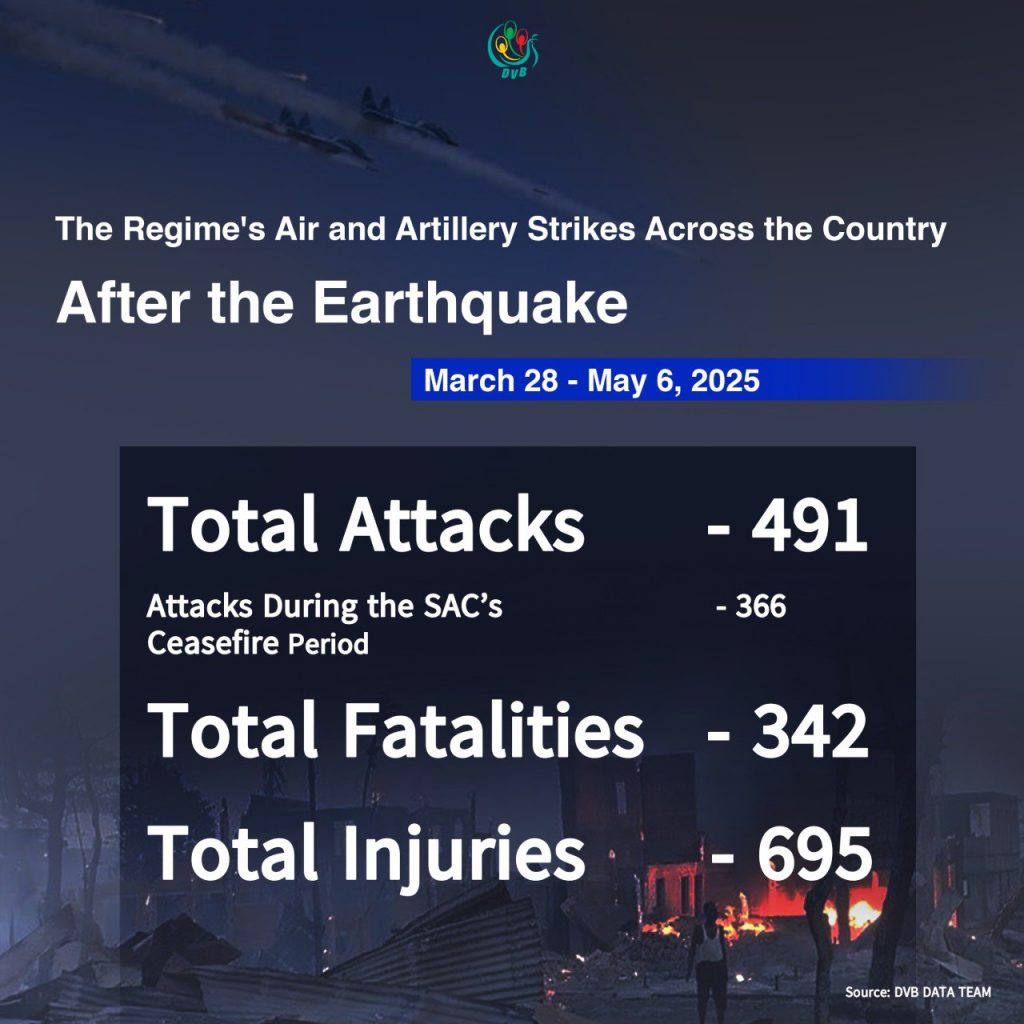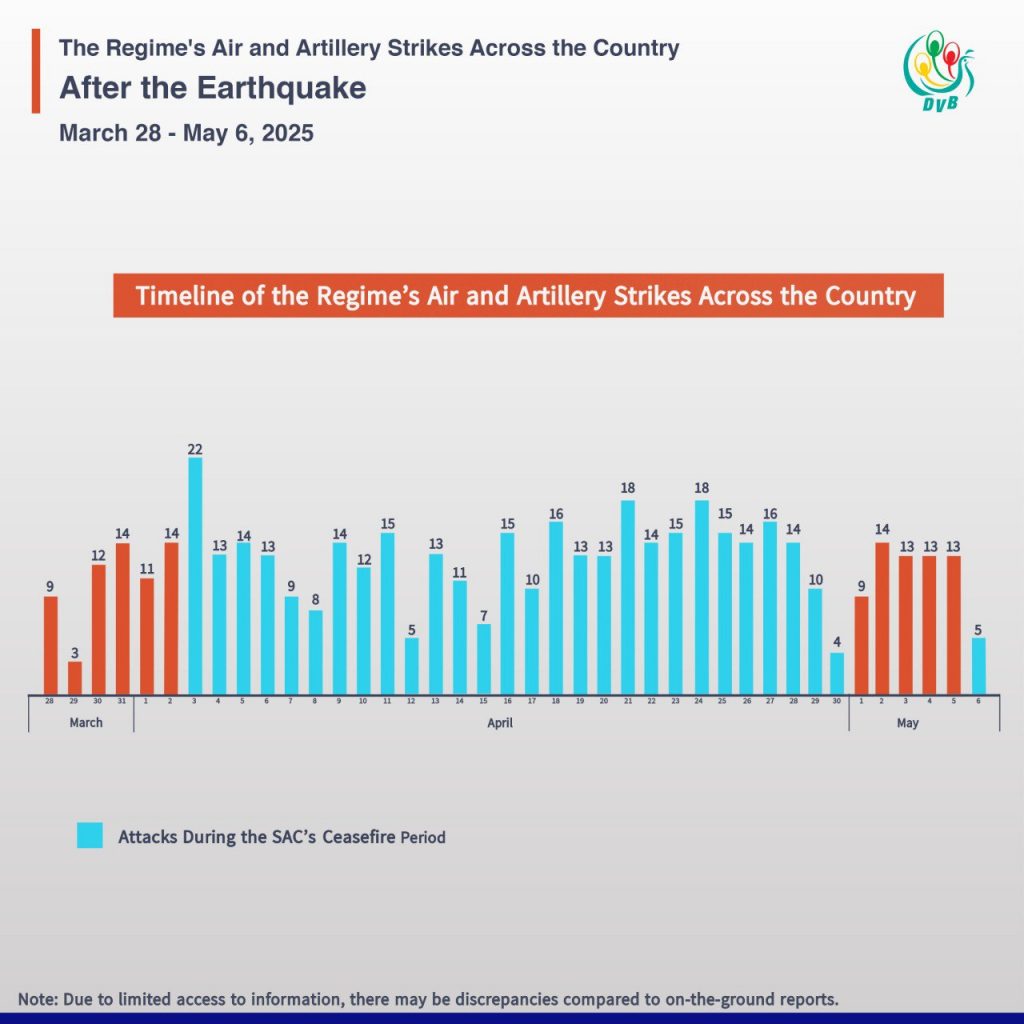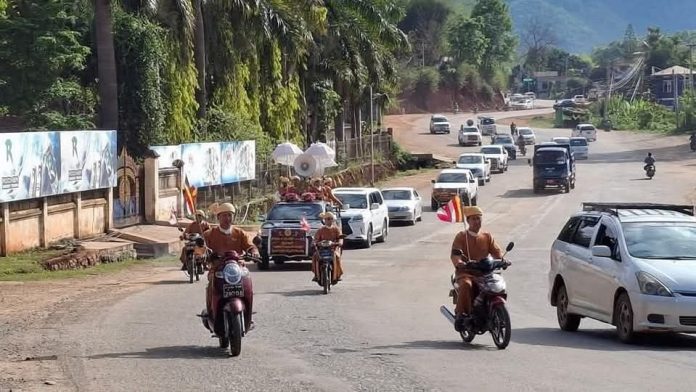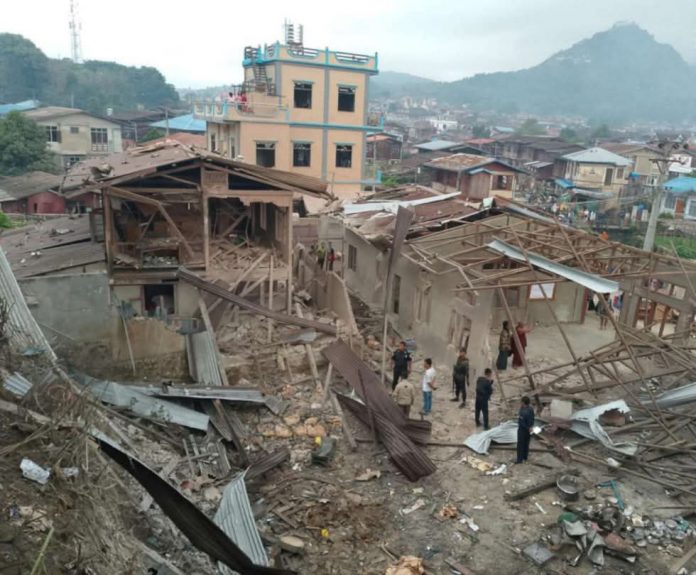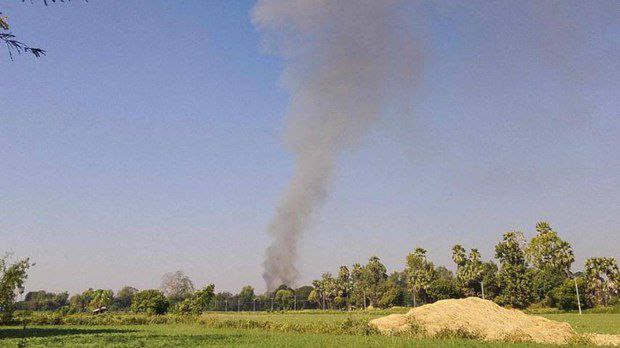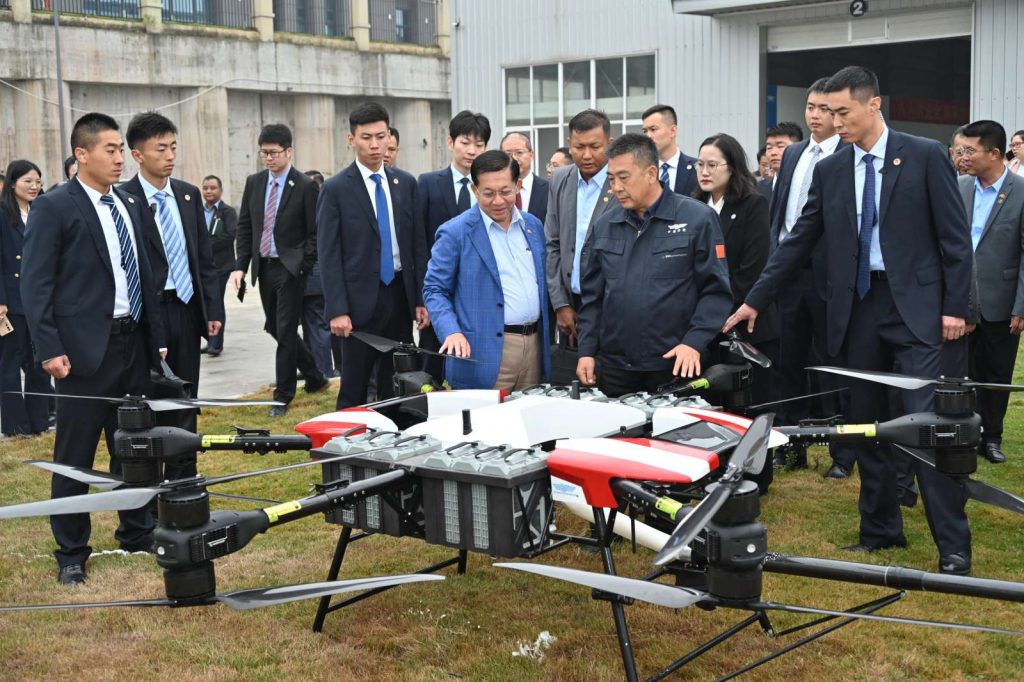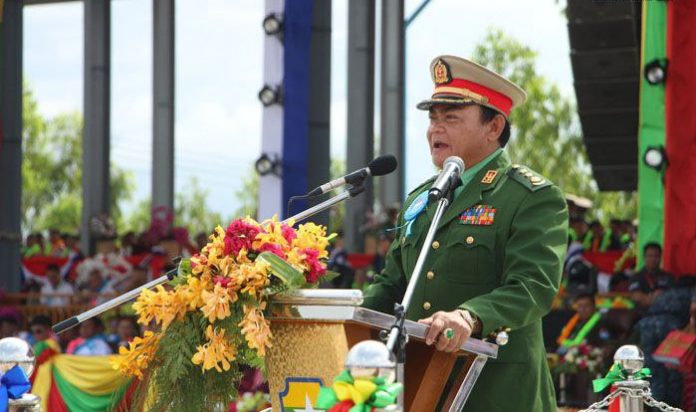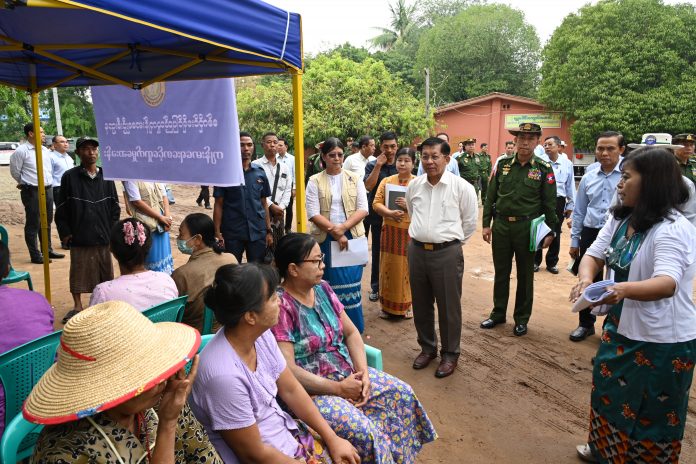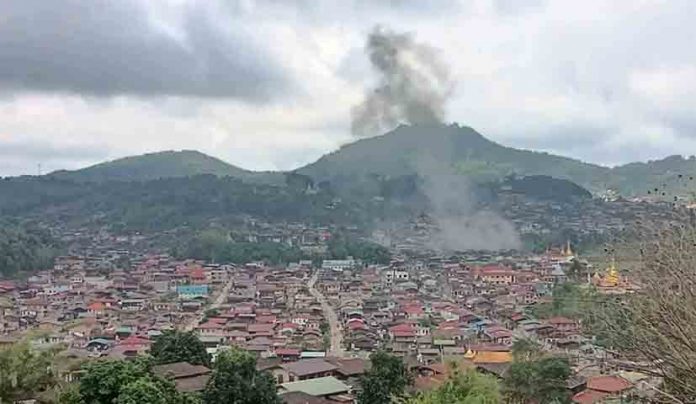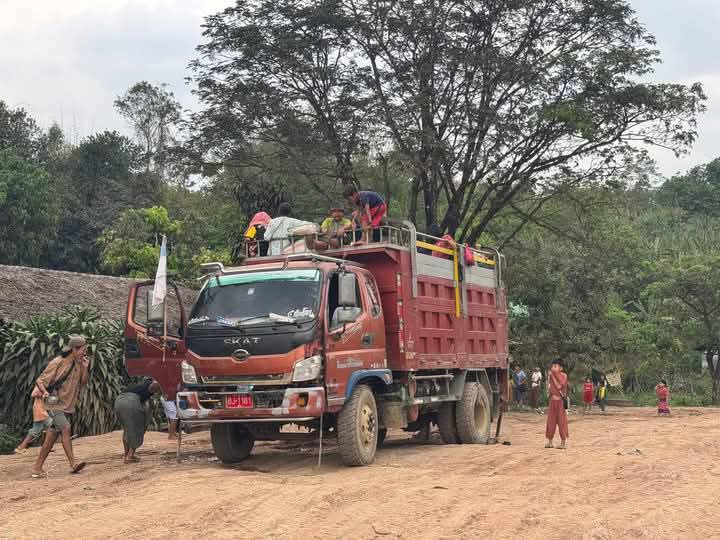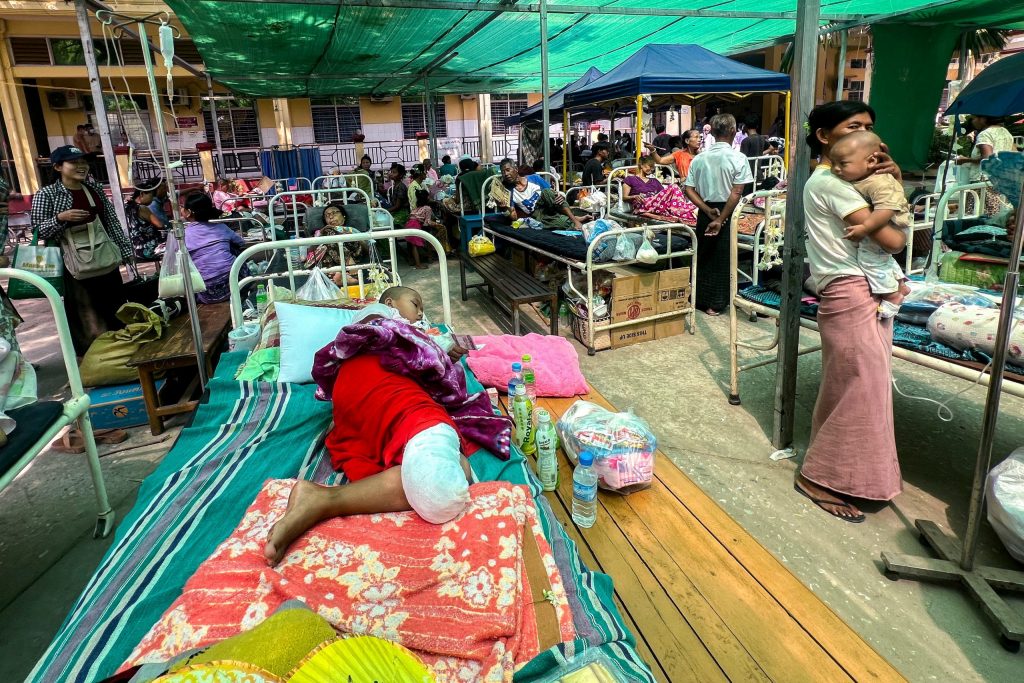Special Advisory Council for Myanmar on China’s ceasefire
The Special Advisory Council for Myanmar (SAC-M) spoke to DVB about China’s intervention in northern Shan State and its pressure on the Myanmar National Democratic Alliance Army (MNDAA) to hand back Lashio Township to the regime. It claimed in a statement on Monday that this was a betrayal of those who died fighting to seize the town, and its Northeastern Regional Military Command (RMC), from regime control.
“China has adopted a policy of open interference in Myanmar,” Connor Macdonald, the SAC-M advocacy and communications officer, told DVB. He added that the Beijing-brokered ceasefire raises concerns over how other resistance groups, including the Brotherhood Alliance’s Ta’ang National Liberation Army (TNLA) and Arakan Army (AA), may succumb to the pressure of signing a peace agreement with Naypyidaw.
Sources told DVB that China’s Special Envoy Deng Xijun was in Lashio last month to oversee the handover from the MNDAA to the regime, which was completed on April 22 as part of the ceasefire agreement reached between the two parties on Jan. 18. Lashio is located 107 miles (172 km) south of the Burma-China border town of Muse and 243 miles (391 km) north of the Shan State capital Taunggyi.
People’s Defence Force marks 4th year of resistance to 2021 coup
The National Unity Government (NUG) marked the fourth anniversary of the formation of the People’s Defence Force (PDF) on Monday. It celebrated the seizure of Indaw Township in Sagaing Region from regime forces on April 7. Besides Indaw, the NUG also administers PDF-controlled Khampat, Mawlu, Pinlebu, Myothit, and Shwe Pyi Aye in Sagaing Region, as well as Singu, Tagaung, and Thabeikkyin in Mandalay Region.
“Indaw was a historic victory for the PDF. It offered valuable experience and important lessons for the revolution ahead,” said Yi Mon, the NUG Minister of Defence, in a speech shared to social media on May 5. The NUG Ministry of Justice announced on May 2 that it has established 31 township-level courts and one interim appeals court in areas it administers.
Burma News International (BNI) released a report on May 5 stating that the PDF and ethnic armed resistance groups now control a total of 96 towns nationwide. This includes 23 in northern Shan and 23 in Arakan states. Sixteen in Chinland. Fourteen in Kachin State. Six in Sagaing Region. Six in Karenni and southern Shan states. As well as four in Mandalay and four in Karen and Bago regions.
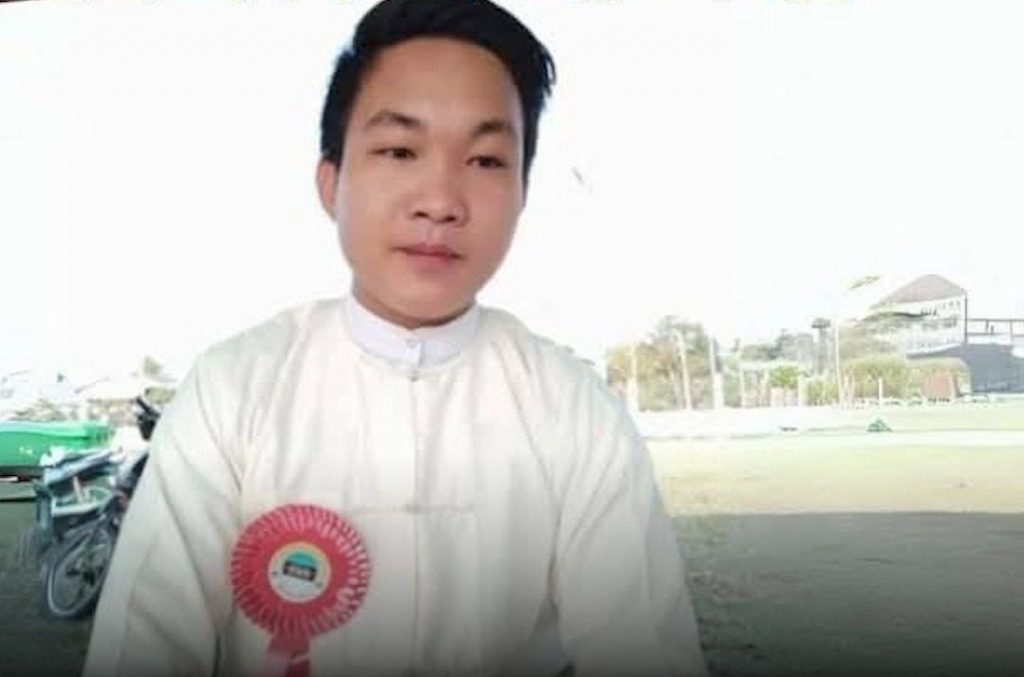
A political prisoner dies in Sagaing Region
The Political Prisoners Network Myanmar (PPNM) announced on Monday that a political prisoner named Hein Min Thu, aged 33, died of tuberculosis at Katha Prison, located in Katha Township of Sagaing Region, on April 26. Hein Min Thu’s family has not been notified of his death by prison authorities, according to PPNM. Katha is located 224 miles (361 km) north of the region’s capital Monywa.
“He was taken to the hospital outside of the prison after he lost consciousness. He remained unconscious in the hospital for several days until he died,” Thaik Tun Oo, the PPNM spokesperson, told DVB. He added that Hein Min Thu, who was a teacher who joined the Civil Disobedience Movement (CDM) after the 2021 coup, did not receive adequate medical attention while held inside the prison.
Hein Min Thu was arrested on June 5, 2023 and sentenced to 15 years in prison for violating the Counter-Terrorism Law and Section 505(a) of the Penal Code for “incitement against the military” on March 28. Over 50 political prisoners have died due to lack of adequate medical care inside the nation’s prisons since the PPNM began collecting data in mid-2023.
News by Region
KAREN—The Karen National Union (KNU) claimed that 39 regime troops were killed in 139 clashes with the Karen National Liberation Army (KNLA) last month in Hpapun Township (Mutraw District), located in KNU Brigade 5 territory 110 miles (177 km) northeast of the state capital Hpa-An.
The KNU added that two civilians were killed by seven artillery strikes and at least 10 airstrikes carried out during April in which a total of 14 bombs were dropped. Four towns, including Hpapun, have been seized by the KNLA and its allied resistance forces from the regime since the 2021 coup.
NAYPYIDAW—Regime leader Min Aung Hlaing will attend the 80th Victory Day parade in Moscow, Russia, on May 9, regime media reported on Tuesday. It did not disclose the date of his departure but added that he will hold separate talks with world leaders attending the ceremony.
Naypyidaw sent a delegation to Moscow to participate in the parade on April 23. This will be the fifth visit to Russia for Min Aung Hlaing since 2021. He was officially welcomed to Russia as Burma’s “Head of State” on March 3. The regime extended its ceasefire on Tuesday up to May 31.
SAGAING—Residents of Ye-U and Kani townships told DVB that one civilian was killed and two others were injured by airstrikes carried out by the Burma Air Force on Ye-U’s Inpahto village on Monday. No casualties were reported in Kani’s East Chaungma village.
Pyae Gyi, a member of the People’s Administration under the NUG, told DVB that there was no fighting against regime forces in Ye-U. Residents fear airstrikes and are unable to return to their agricultural practices. Kani and Ye-U are located 37-55 miles (59-88 km) north of the region’s capital Monywa.
(Exchange rate: $1 USD = 4,410 MMK)
